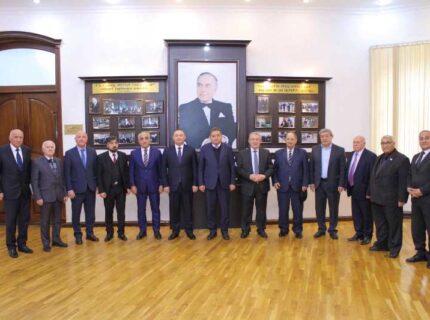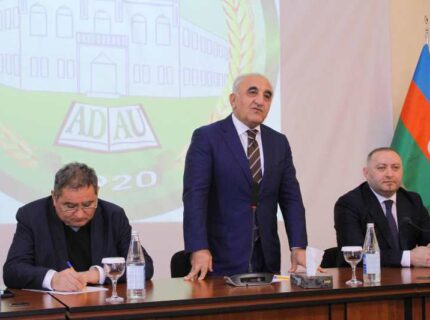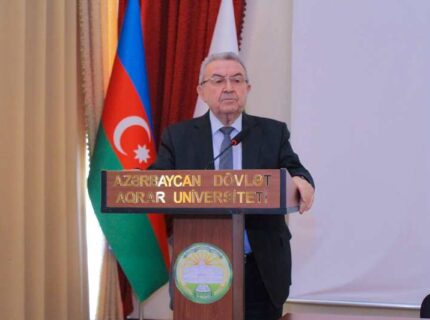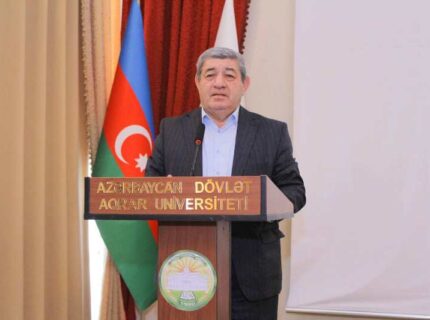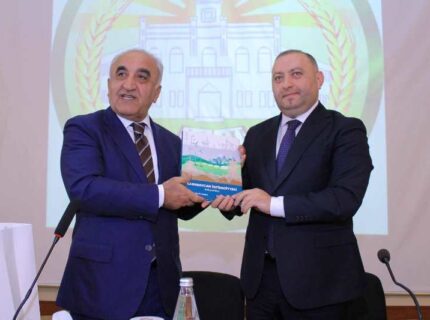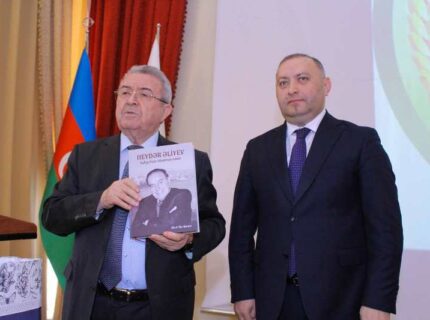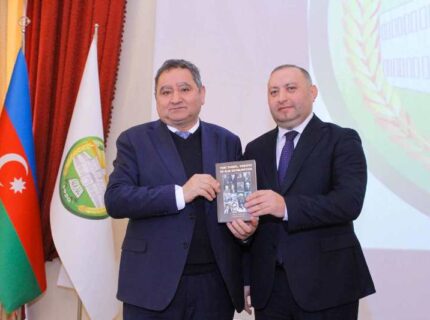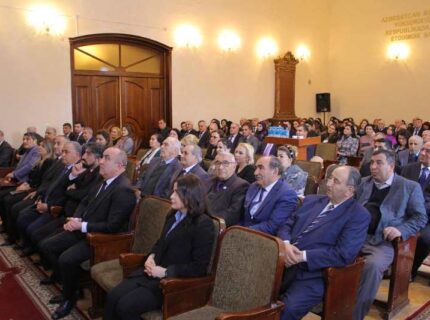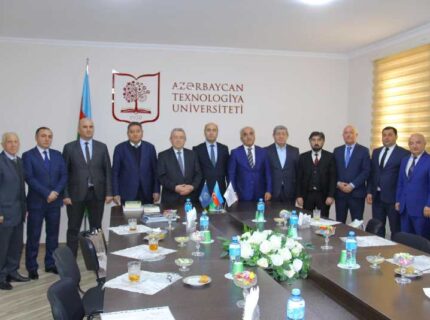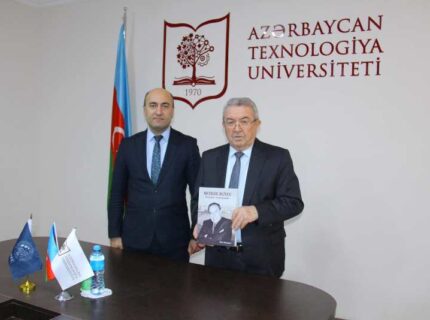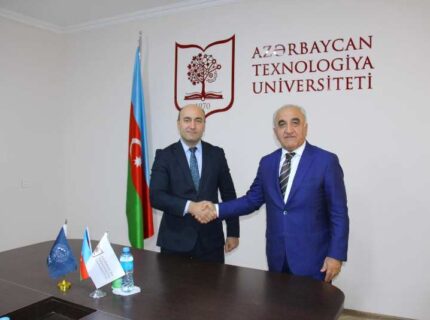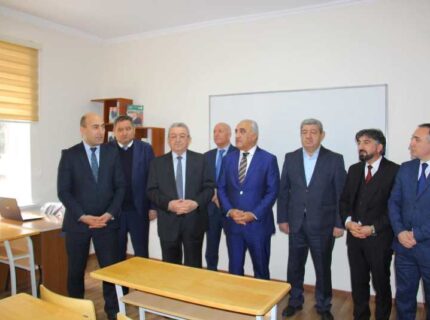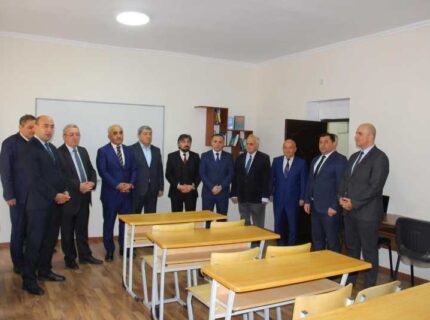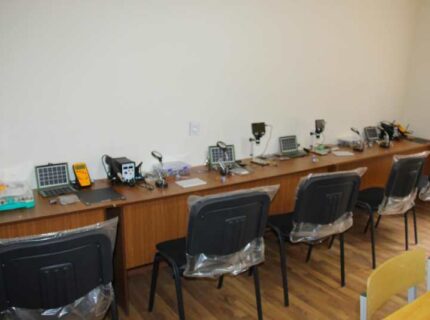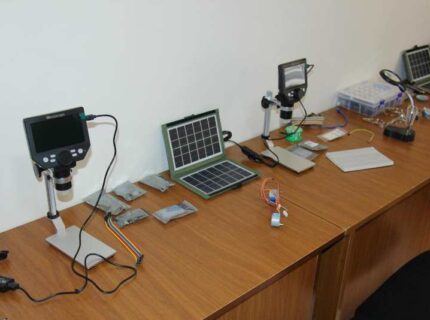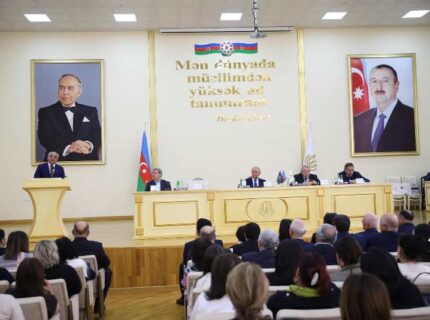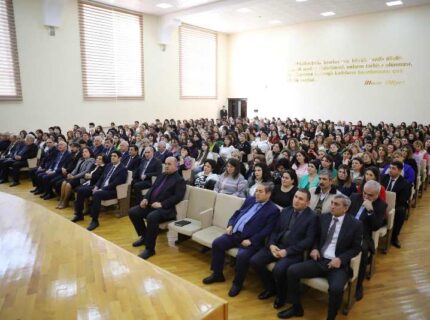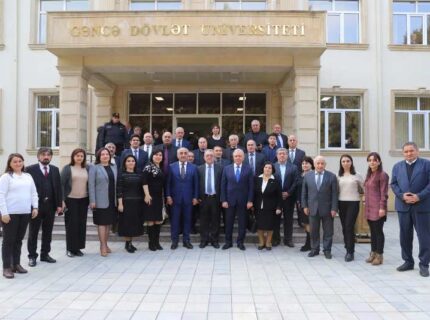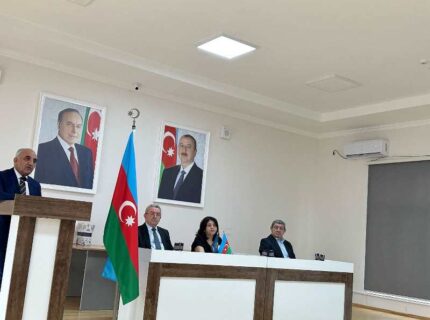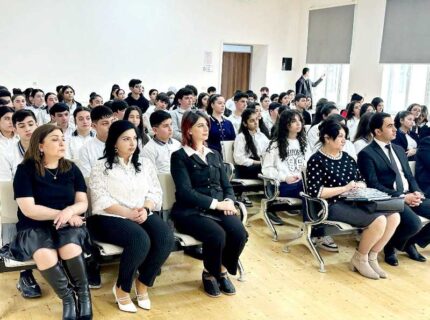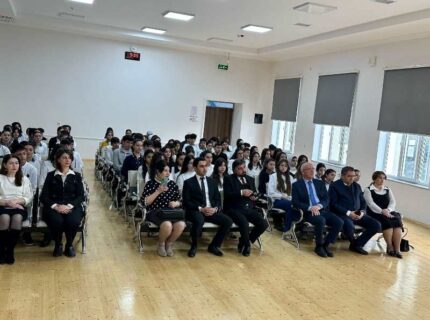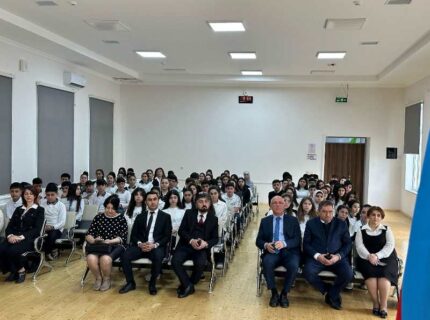UNEC’s Initiatives for the Advancement of Science
Within the framework of the initiatives titled “Popularization of Science” and “Science is Beautiful: From School to Science” implemented by the Azerbaijan State University of Economics (UNEC), a series of meetings were held in the city of Ganja.
The meetings were attended by UNEC Rector, Professor Adalat Muradov; Director General of the Institute of Mathematics and Mechanics of the Ministry of Science and Education, Professor Misir Mardanov; Academician Nizami Jafarov; Vice-Rector for Science and Innovations, Professor Rovnag Rzayev; and Associate Professor of the Department of Economics, Azer Mehtiyev. The delegation engaged in discussions with representatives of Azerbaijan Technological University, Ganja State University (GSU), Azerbaijan State Agricultural University (ASAU), as well as with students and teachers at Ganja’s No. 27 Physics, Mathematics, and Informatics Lyceum and No. 11 Secondary School.
The initial meetings were conducted in secondary schools. During these sessions, Rector Professor Adalat Muradov emphasized that the primary objective of the project is to cultivate an interest in science among children from an early age and to raise their awareness of the beauty and significance of science. He underscored that this initiative not only encourages students to pursue scientific endeavors but also provides them with valuable opportunities to explore diverse scientific disciplines and gain comprehensive information about potential career pathways in these fields.
Subsequently, Professor Misir Mardanov and Academician Nizami Jafarov delivered engaging presentations to the students, elucidating the role of science in society. The scholars articulated their perspectives on the development of science and the enhancement of education, urging students to deepen their knowledge and aspire to successful careers in scientific domains.
During the meeting, Professor Misir Mardanov proposed several initiatives aimed at supporting young scientific talent. He advocated for the early identification of students’ scientific abilities and emphasized the importance of providing institutional support to nurture their potential. Mardanov highlighted that such measures would contribute to the training of highly qualified professionals in scientific and technological fields, thereby strengthening the country’s scientific landscape.
Furthermore, Professor Mardanov underscored the necessity of organizing subject-specific Olympiads for students, coordinated by higher education institutions. He suggested that students who achieve success in these Olympiads should be granted exemptions from the corresponding subject examinations upon admission to the respective universities.
In his remarks, Rector Professor Adalat Muradov proposed showcasing talented students’ startups and innovative projects at UNEC’s annual “Science Festival”, traditionally held in commemoration of Science Day. He noted that this initiative would foster closer collaboration between universities and secondary schools. Additionally, Professor Muradov suggested organizing “Open Laboratory Days” at UNEC, offering talented students the opportunity to conduct scientific experiments alongside leading researchers.
As part of the visit to Ganja, the delegation also held meetings at higher education institutions within the framework of the “Popularization of Science” initiative.
The delegation participated in the inauguration of the Virtual Learning and Simulation Laboratory at Azerbaijan Technological University. Established as part of the “REFRESH” project—coordinated by UNEC with the support of the European Union and in partnership with ATU—the laboratory is designed to enhance the knowledge and practical skills of students specializing in Environmental Engineering and to facilitate ecological monitoring activities.
During meetings at Ganja State University, Azerbaijan State Agricultural University, and Azerbaijan Technological University, Rector Professor Adalat Muradov provided an overview of UNEC’s initiatives aimed at promoting science and presented the results achieved thus far. He emphasized the critical importance of advancing science to ensure its effective popularization in the country and encouraged higher education institutions to collaborate closely in this regard.
Extensive discussions were held regarding the enhancement of cooperation among higher education institutions. The parties reached agreements on assessing the material and technical resources and human capital of scientific research centers at regional universities, implementing joint scientific research projects, and co-authoring scientific articles.
Additionally, the participants exchanged views on restructuring doctoral education, adopting differentiated approaches to support faculty members with high research potential, and improving the quality of the teaching process.
As part of the visit, more than 100 scientific books were donated to the participating schools and universities.
